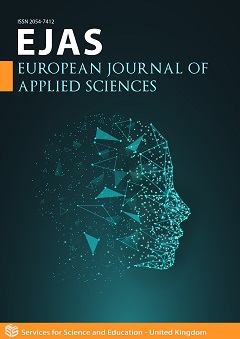A New Habitability Index
DOI:
https://doi.org/10.14738/aivp.115.15532Keywords:
exoplanets, search for lifeAbstract
We present a Relative Habitability Index (RHI). The RHI is derived automatically from the NASA Exo-planet Archive, which contains over 5000 entries. It that can be used to find the best exoplanets for detailed studies of atmospheric composition with regard to habitability. The RHI incorporates three planetary parameters: radius, density, and blackbody temperature. One additional parameter is used, stellar metallicity. The RHI measures similarity to Earth’s parameters so that an RHI of 1 is a perfect score. There are very few with an index of 1 and the distribution is bimodal, with a major peak at 0.3, and a minor peak at 0.6. We argue that planets with an RHI in the range, 0.8 - 1, are most likely to have been habitable during some fraction of their lifetime. An example at the low end of this category is Mars, with an RHI of 0.81. Trappist-1f is an example at the high end, with an RHI of 0.92, within 10% of Earth, which means it is very similar to Earth in 4 important ways. Nominally, it is also likely to harbor life. Kepler-22b and Gliese 667Cc are in the ”pro-life” minor peak at 0.6. This value, though not ideal, represents exoplanets that are typically off in only one parameter. Thus, it may still be possible that they harbor life or have evidence of past life. Satellites of planets can also be evaluated with the RHI for surface life. For example, Titan, Saturn’s largest moon, is in the pro-life category. In contrast, the primary peak in the RHI distribution, occurring around 0.3, contains Jupiter, for example, which is unsuitable for life in every category.
Downloads
Published
How to Cite
Issue
Section
License
Copyright (c) 2023 Mark J. Henriksen, Natalie Piltoyan

This work is licensed under a Creative Commons Attribution 4.0 International License.






